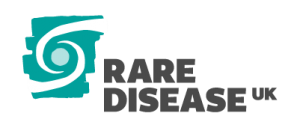About Us
Who we are
We are polio survivors (not doctors) who, after years of stable functioning following recovery from polio (poliomyelitis, infantile paralysis), are experiencing new deterioration. In most cases these problems have been gradual and, whilst medically noted, most often are not explained or diagnosed/diagnosed correctly over many years.
Our Intentions
To collect, collate and provide polio and post-polio conditions related material from all over the world. This includes, but is not limited to, infantile paralysis, polio, poliomyelitis, post-polio sequelae, post-polio syndrome, post-poliomyelitis syndrome and the late effects of polio. The most common term is post-polio syndrome, with the abbreviation PPS.
A few years ago the committee decided that having Lincolnshire in our title was restrictive when discussing issues with NHS departments in other areas of England. To better reflect the spread of our membership we became known as Polio Survivors Network.
Our Aims
- To represent the concerns of the members of the Polio Survivors Network and their families
- To promote an understanding of the experiences of those living
with the long-term effects of polio and post-polio syndrome among health and social care professionals, service providers and the general public - To encourage health and social care service providers to include polio survivors and families in the consultation and planning of local services
- To promote the provision of good quality and appropriate multi-disciplinary assessments, rehabilitation and respite care for polio survivors, their carers and families
- To promote the provision of good quality information that enables and empowers polio survivors and their families to make decisions about their daily lives
- To promote better research of treatments, therapies, equipment and quality of life issues that concern polio survivors and their families
By
- Consulting the members of the Polio Survivors Network and other polio support groups around the world to identify their concerns
- Raising awareness of the new issues being experienced by survivors of polio
- Encouraging working relationships between our members and health and social care services at national and local levels
- Educating and informing
- Networking with others who share similar concerns
Our Campaigning Messages
- Better understanding by health and social care professionals that there is a later stage to having had polio in one’s earlier life and how it affects individuals, their partners and families
- Appropriate and adequate assessment of physical abilities including endurance testing
- Appropriate and adequate assessment of respiratory and swallowing problems
- Better listening to polio survivors’ experiences of the symptoms of post-polio syndrome and changing the questions ‘Can you do x?’ to ‘How do you do x?’ – allowing polio survivors to tell it like it really is
- Better focus on the needs of people with rare conditions by health and social care professionals and researchers. Post-Polio Syndrome is classed as a rare condition
- Better orthotics and wheelchair services
- Membership of the Neurological Alliance working with the leading national campaign for better services for those with neurological conditions; repeatedly raising the issues of poor or non-existent data hampering the discussions in many areas (Lincolnshire is a prime example)








